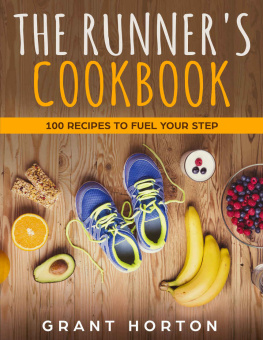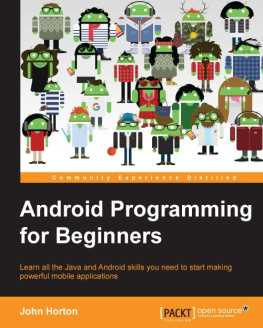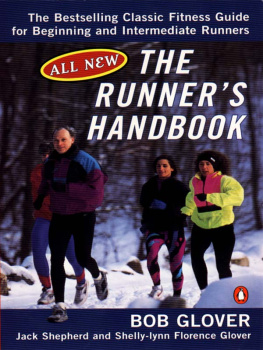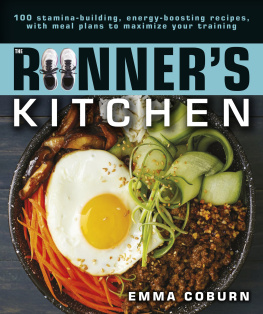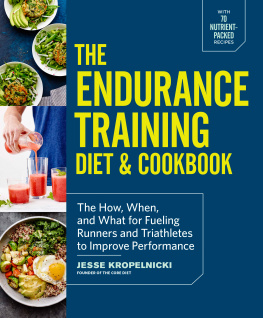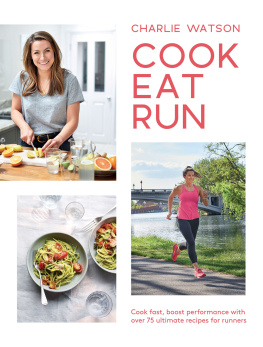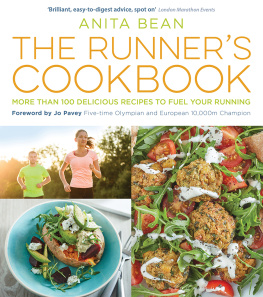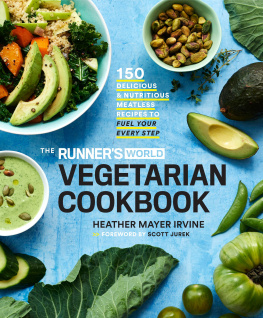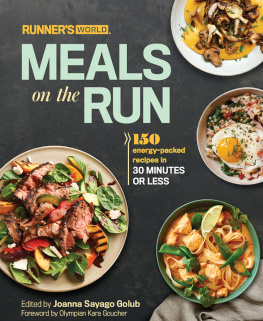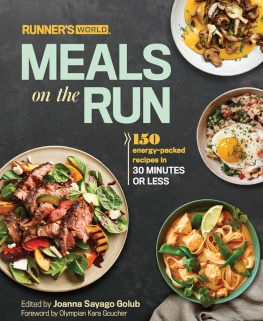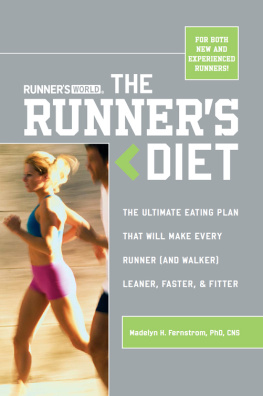Runner's Cookbook: 100 Recipes to Fuel Your Step As in the case of sleep mode, consistency is also the basis of daily food and nutrition just before the race. Good nutrition for several days before the competition will provide some help, but will not correct the situation after several weeks of malnutrition. Another essential issue is nutrition right before the race. This is a specific question, as well as the level of intensity of training and the choice of running tactics, but it must be based on solid principles. Some runners experience discomfort when they run on a full stomach. Others like to eat just before a race or heavy exercise.
Take for example, a guy who ate a hot dog with a cola half an hour before the second race of the day (two miles). When he was asked how he would feel during the race, he nonchalantly replied: Ill run with my feet, not with my stomach! It was he who won the race with his feet. The opposite example is another person who had not eaten anything eight hours before the start. If he broke this rule, he was sick and sometimes right during the race. Another athlete, who was not coached, said that one day, two days before 10,000 meters, he felt an inconvenience in his stomach and had not to eat 36 hours before the race. In that race, he set his personal best, and after that, before the long-distance races, he began to starve for at least a day or two.
Do what best suits you. Its advisable to eat nothing or almost nothing at least 3-4 hours before the race. Up to this point, it is necessary to eat foods rich in carbohydrates: bakery products, rice, pasta. Most runners tolerate this food well on the day of the race and the eve of it. Some runners are trying to get more protein and even fat in the form of eggs, baking, meat, but this food should be eaten early, since its absorption requires more time. Observe moderation.
And still - experiment. Eat a different meal on the eve of training sessions or not the most important competitions and see how it affects your results. Develop the habit of drinking and loading carbohydrates for four hours after a competition or training session. At this time, eat and drink in small portions every 30 minutes to consume about two grams of carbohydrates per kilogram of your weight per hour. This speeds up the recovery of depleted glycogen stores, which is very important, especially after long-distance races. The longer the race or training session was, the more important the nutrition after it.
Fluid consumption Elite marathon runners consume very little fluid during races that they perform in less than 2 hours and 30 minutes. At the same time, they can withstand 1-2% loss of body weight at temperatures over 22 C, the main cause of which is considered water loss (higher fluid loss during the marathon leads to dehydration and related problems). During the marathon runs, the International Medical Managers Association recommends fluid consumption in the amount of 400-800 ml / h, while for faster and heavier runners and in warmer weather conditions, more fluid is required than for runners who are slower and runners. In cooler environmental conditions. This recommendation seems to be the most reasonable, but individual runners should determine their fluid requirements rather than rely on general prescriptions. Drink water with food.
Water is well absorbed, and some modern sports drinks are absorbed no worse. Avoid large amounts of sugary foods, as it helps to keep fluid in the stomach, and you may experience bloating. Drink most of the water or drink for 4-8 hours before the race and try to maintain a sufficient level of hydration until the start, but, of course, do not overdo it, so as not to run to the toilet every 10 minutes. Running a middle distance Running at medium distances includes distances from 800 m to 3,000 m, including running with obstacles. Middle distance runners have particular difficulties during training and competition, requiring a unique combination of speed and endurance. Workout issues for middle distance runners Middle-distance runners provide dynamic continuity in the training volume, its duration, and intensity, using all the methods of creating energy and types of muscle fibers.
At the center of this systematic training, the regime should be used as a systematic approach to nutrition, which takes into account the nutritional needs at the moment and during the season, caused by special training loads. As athletes participate in training and competitions during the season, starting with the development phase of stamina and reaching a peak during participation in the championship, the relative contribution of carbohydrates to energy production increases, while the energy derived from fat decreases. Most of the training load usually consists of intensive interval training, which places particularly high demands on limited carbohydrate stores. The level at which the muscles use carbohydrates increases exponentially as the running speed increases, and thus the middle distance runner can use more muscle glycogen during an intensive interval 30-minute workout, consisting, for example, of running 20 x 200 m with a short rest than a marathon runner uses during a two-hour workout. If on the same day one more workouts are later carried out, then it is necessary to ensure, as a primary task of maintaining the quality of the workout, the restoration of carbohydrate stocks between workouts. High-intensity training can also cause gastrointestinal problems.
Therefore, athletes are often reluctant to eat for several hours before training and may not want to eat anything for several hours after training. When heavy workouts are conducted at short intervals, it is important to eat immediately after the first workout, if you need to optimize recovery. Therefore, athletes need to eat at regular intervals, even if they are not hungry. Drinks containing carbohydrates and snacks or pastries containing carbohydrates may be helpful at this time to begin the energy recovery process. There is evidence that middle-distance runners doing endurance and bridging training should distribute their daily workload so that between two different sources of irritation, there are at least a few hours to recover. More research is needed to better characterize the adaptation caused by the training before giving any specific advice.
It is clear that eating protein and carbohydrates soon after a workout in overcoming mode has its potential advantages for improving adaptation to training, but it is less clear that this also applies to other types of training. High aerobic abilities are especially important for middle distance runners: maximum oxygen consumption is higher for middle distance runners than for the best marathon runners. Thus, iron reserves are extremely important, and athletes must take care to ensure an appropriate amount of iron by eating red meat, liver, or seafood at least 2-3 times a week. If this is not possible, it is recommended to eat regular breakfast cereals containing iron and vegetables with green leaves. Matters Related To Competition for Middle Distance Runners Although it is not clear that the carbohydrate load will give the same advantages to a middle-distance runner as an athlete engaged in endurance, it is clear that an athlete starting a competition with a low supply of muscle glycogen will not be able to perform well. Maybe in the first part of the competition, his muscles will feel good, but when the competition reaches its peak and before the end, the muscles will need to replenish glycogen.
Additives of baking soda and alanine can increase intracellular and extracellular buffering abilities, which, in turn, can lead to a small but significant improvement in outcome. Although purely individual, data show that taking 0.3 grams of either baking soda or citrate per kilogram of bodyweight approximately 1 to 3 hours before the exercise can provide a small but real improvement. There is a risk that consuming large amounts of these buffering agents may cause vomiting and diarrhea in some athletes, and it is better to experiment in training rather than in competition. Optimum numbers for loading and maintaining muscle carnosine levels when using supplements with (3 alanine are currently under study but will include prolonged use for more than 6 weeks with a daily intake of approximately 24 g. Long-Distance Running and Race Walking: Workout Issues for Long-Distance Running The demanding endurance training program usually includes a daily workout or a workout twice a day. Inadequate replenishment of energy leads to fatigue and ineffective training.
Next page
